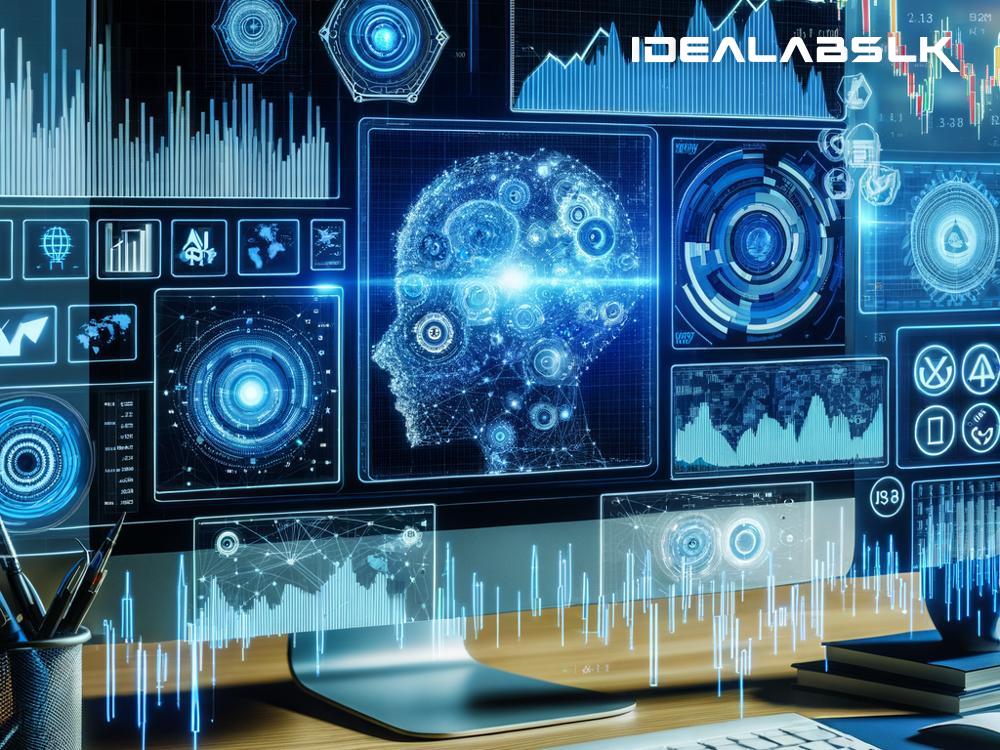AI for Trading: Revolutionizing Market Analysis Through Technology
Welcome to the future of trading! In recent years, artificial intelligence (AI) has significantly changed the landscape of business, and the stock market is no exception. Gone are the days when traders had to spend endless hours analyzing complex charts and data. AI models have now stepped in, transforming how we understand and react to market trends in real time. In this article, we'll dive into the magic of AI for trading, explaining how it works in simple English and why it's becoming an indispensable tool for traders around the globe.
Understanding AI in Trading
At its core, AI involves computers performing tasks that traditionally require human intelligence. This includes learning from examples (machine learning), understanding natural language, and recognizing patterns. When applied to trading, AI systems can analyze massive amounts of market data, predict trends, and even execute trades at speeds no human can match.
The Power of Real-Time Market Analysis
The stock market is incredibly dynamic, with prices fluctuating every second. The ability to analyze these changes in real-time and understand their implications is crucial for making informed trading decisions. Here's where AI shines brightly. AI models can process vast datasets - including historical price data, news articles, and social media sentiment - in milliseconds. This allows traders to get insights instantaneously, staying ahead of the curve.
Identifying Patterns and Predictive Analysis
One of AI's most significant advantages is its ability to identify hidden patterns within large datasets. For traders, understanding these patterns is like finding a treasure map that leads to informed decision-making. Predictive analysis, a forte of AI, involves using historical data to forecast future market movements. By analyzing past trends and correlating them with current data, AI models can predict with a certain degree of accuracy where the market is headed. This is invaluable for traders looking to make strategic moves.
Risk Management
Trading is inherently risky, but AI can help mitigate these risks through sophisticated algorithms. AI systems can continuously monitor market conditions and adjust trading strategies accordingly. They can also calculate the risk associated with particular trades and diversify investments to spread out potential losses, making trading strategies more resilient in volatile markets.
How AI Models Enhance Trading Strategies
AI doesn't just stop at analysis; it directly influences trading strategies. Traders armed with AI tools can:
- Automate Trades: AI can execute trades based on specific criteria, ensuring you don't miss opportunities even when you're asleep.
- Optimize Investment Portfolios: AI suggestions can help balance your investment portfolio, ensuring a healthy mix of risk and reward.
- Get Insights on Market Sentiment: By analyzing news and social media, AI can gauge the market's emotional tone, providing clues about future movements.
The Impact on Individual and Institutional Traders
Both individual retail traders and massive institutional investors are leveraging AI to stay competitive. For individuals, AI levels the playing field, offering tools that were once exclusive to large institutions. Institutions, on the other hand, are developing more sophisticated AI models to analyze unstructured data, creating complex strategies that individual traders might not easily replicate.
Embracing AI in Your Trading Journey
Incorporating AI into your trading doesn't have to be daunting. Many trading platforms now offer built-in AI tools and analytics. Starting with these can help you get comfortable with AI-driven insights. Additionally, there's a growing number of resources and online communities focused on AI for trading, where you can learn from experienced traders and AI experts.
The Future is Bright
As technology advances, the capabilities of AI in trading will continue to evolve. What seems revolutionary today might become the standard tomorrow. For traders willing to embrace AI, the future looks promising, offering the potential for smarter, faster, and more efficient trading strategies.
Conclusion
AI for trading is not just a trend; it's a tool transforming how we analyze and respond to market movements. By providing real-time insights, predicting trends, and automating trades, AI models offer a competitive edge in the fast-paced world of trading. As we look to the future, the integration of AI in trading strategies will undoubtedly become more prevalent, reshaping the financial landscape in ways we're just beginning to imagine. Whether you're a seasoned trader or just starting, exploring the possibilities AI offers is an exciting step towards a more informed and efficient trading journey.

